Subscribe for more!
Subscribe to our newsletter for insights and articles on wide ranging issues including reputation management, branding, advertising, awareness, advocacy, and communications. You can unsubscribe anytime.
Follow us on social:
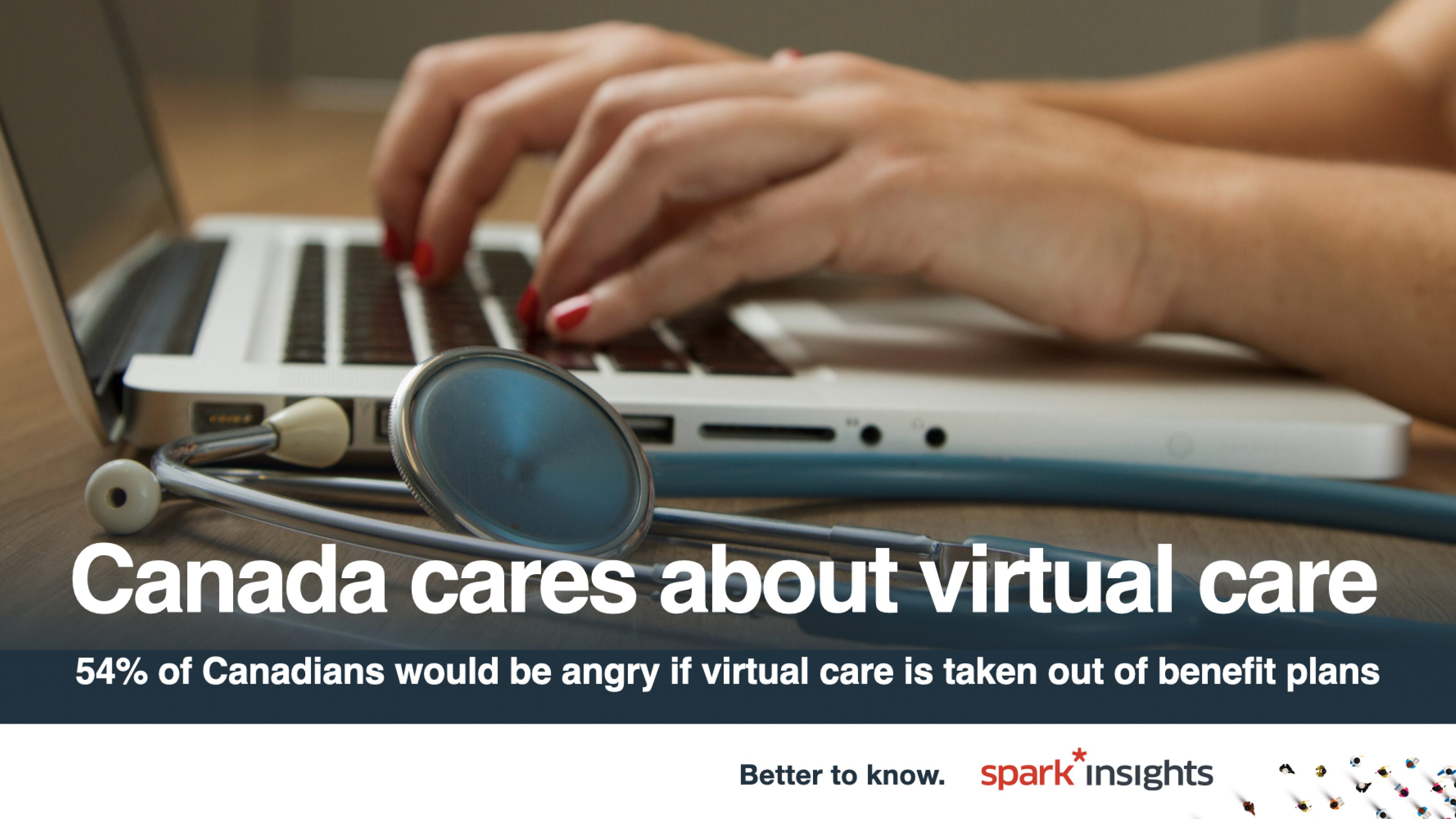
xxxx
As federal and provincial governments continue to look for new ways to address concerns Canadians have with the current healthcare system, policy discussions have turned to the management of access to virtual healthcare options. A recent leaked Health Canada memo suggests the federal government is considering intervening to prevent workplace and group benefit plans from offering virtual care coverage.
spark*insights conducted an online survey of 1,815 adult Canadians to hear how they feel about virtual care and the potential changes to how these services can be accessed.
Here’s what we found:
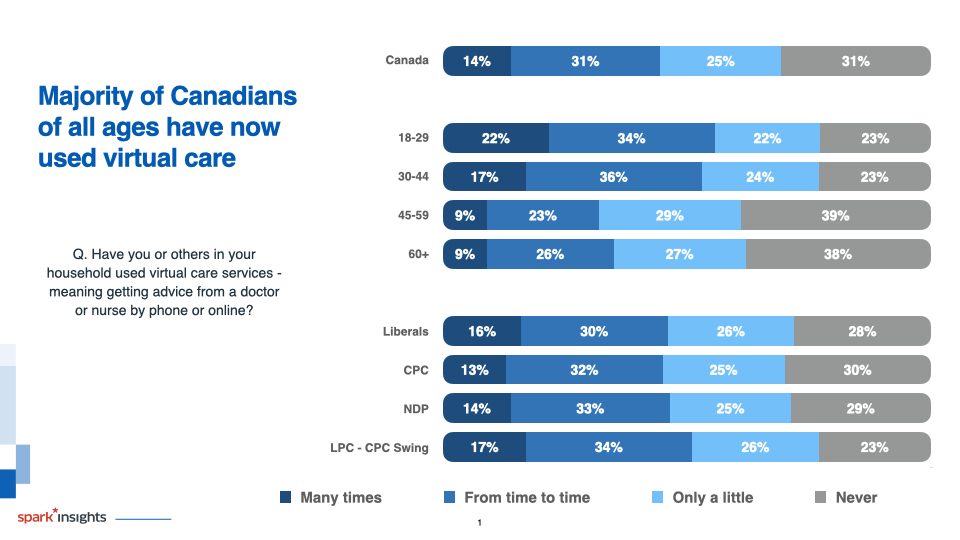
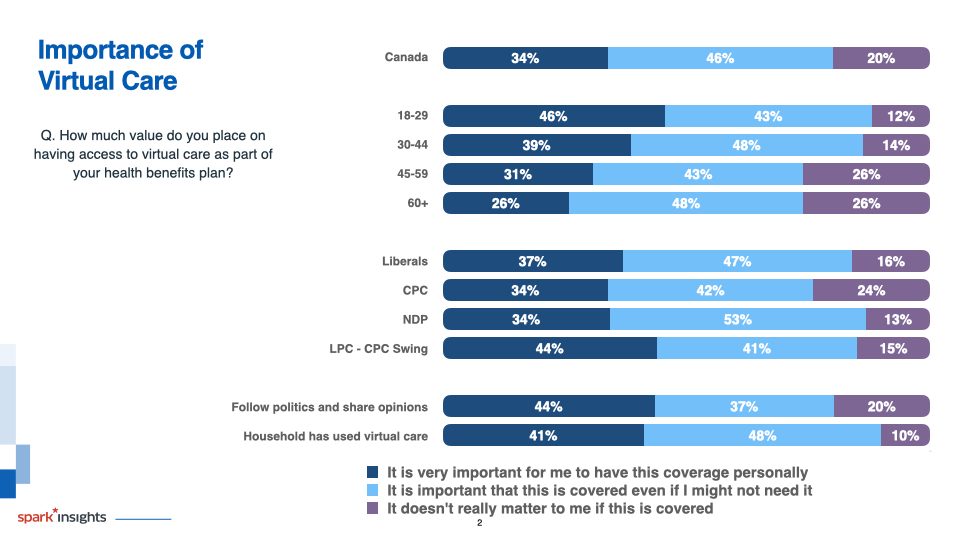
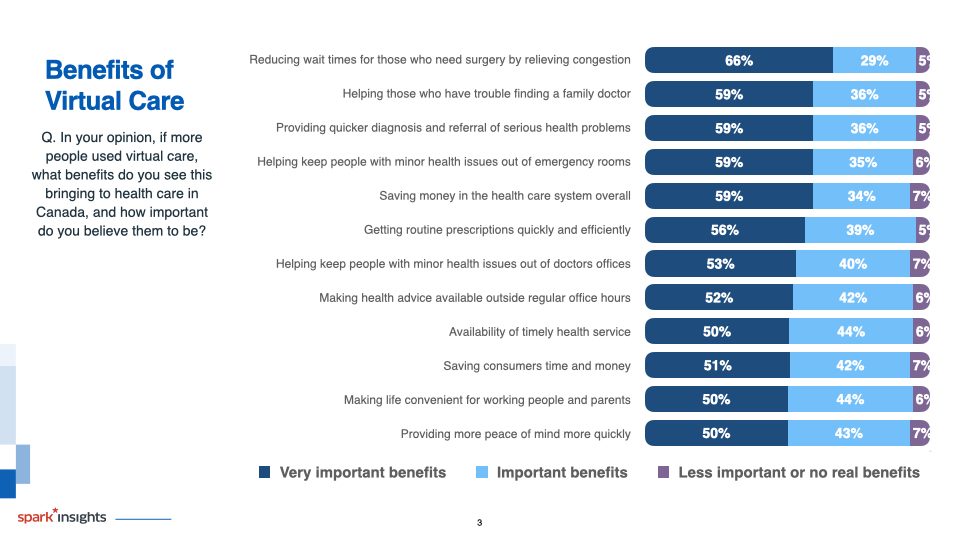
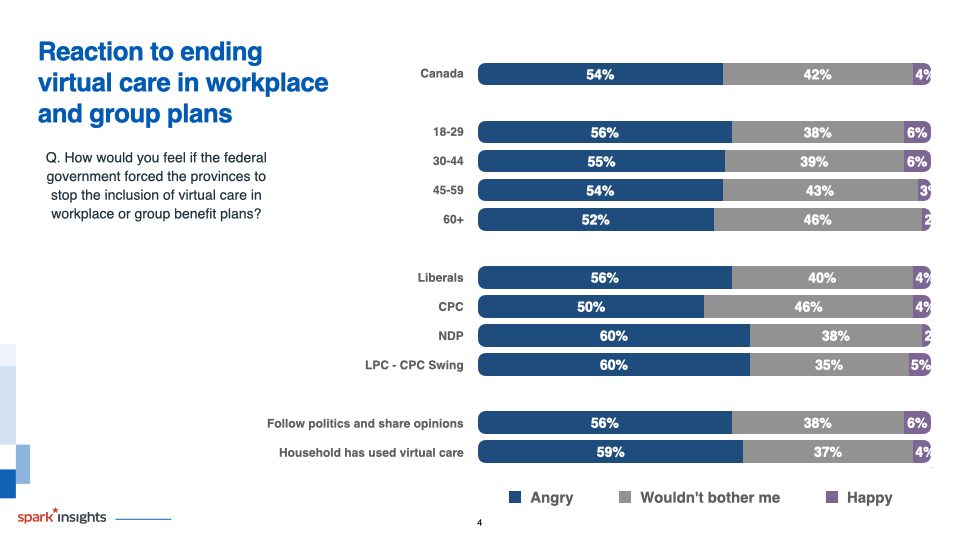
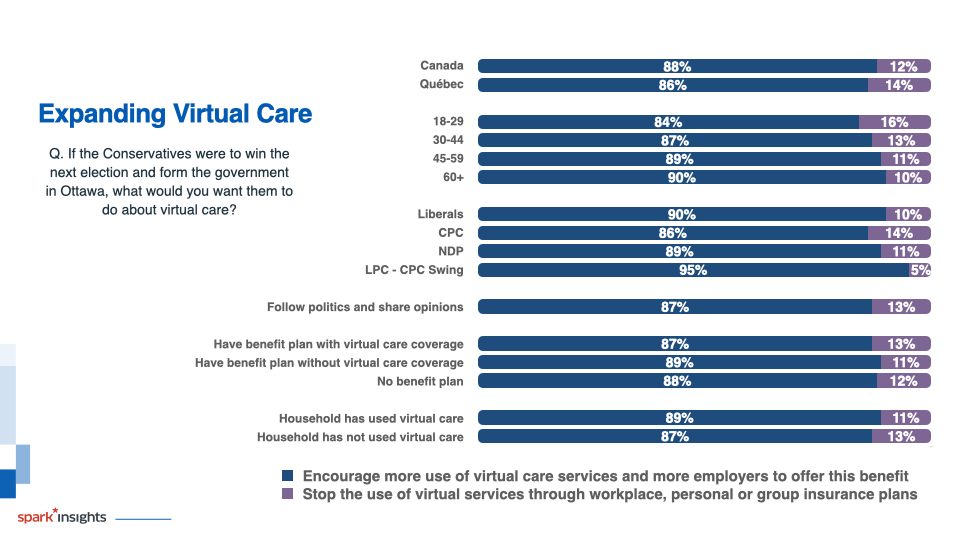
Alex Kohut, Senior Director of spark*insights: “COVID has had a massive impact on how Canadians think about virtual health care. What might have been seen as a luxury service by many prior to 2020 is now a service that a majority of Canadians have used and many depend on. Our polling suggests many Canadians have become very attached to these benefits and it may now be politically damaging for any party to implemented changes that are perceived as taking away virtual care coverage from Canadians.”
Findings are drawn from an online survey of 1,815 adult Canadians conducted from August 3 to 7, 2024 on behalf of Dialogue Health Technologies. Results are weighted according to age, gender, region, education and past vote to be representative of the general voting population.
spark*insights is led by Bruce Anderson, one of Canada’s leading and most experienced public opinion researchers. From polling and research to analysis and guidance, we help organizations, uncover the factors driving or influencing public perception to gain valuable insights into the shape and movement of the landscape.